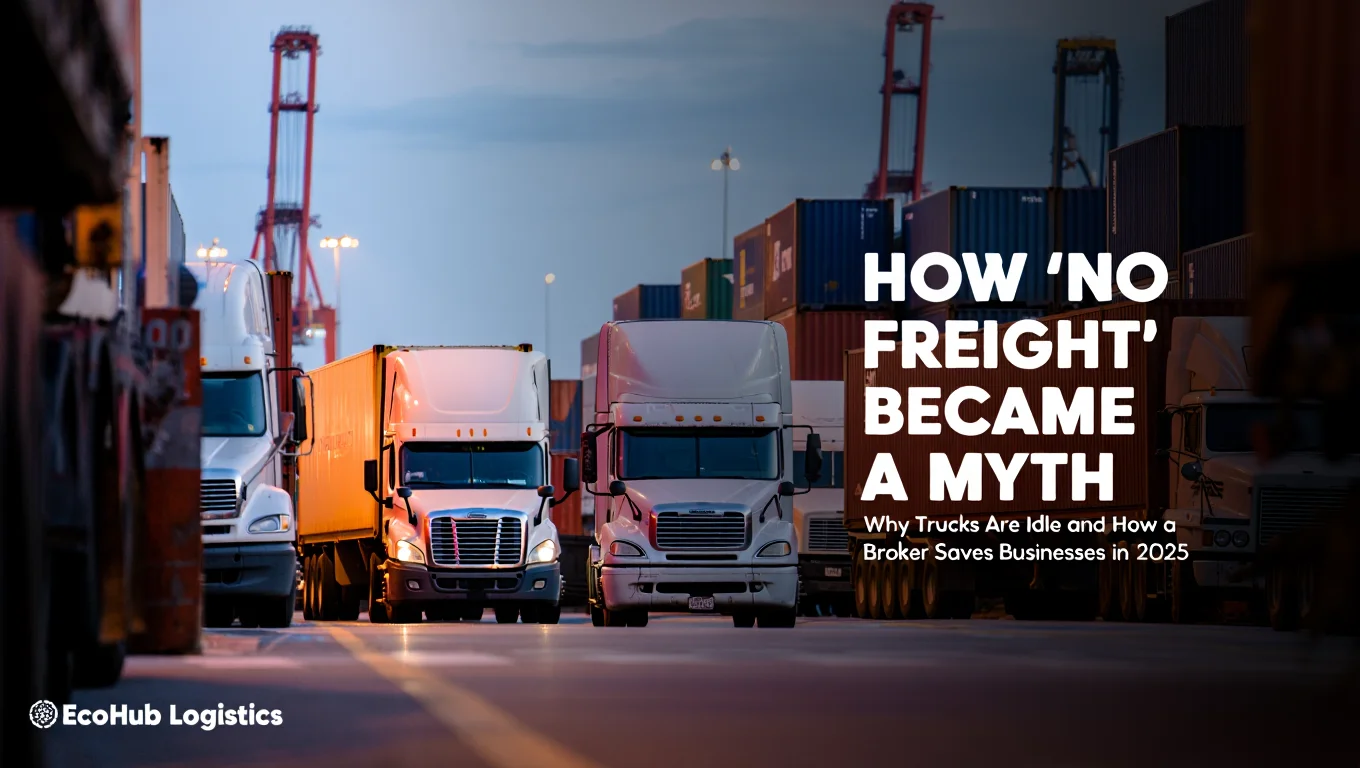The “No Loads” Myth: Why Trucks Are Sitting and How a Good Broker Saves Your Business in 2025
“There’s nothing to haul,” many truck owners say. But that’s only half the truth.
The market isn’t dead. It’s transformed. And in 2025, it’s not the biggest fleets that win — it’s the ones with a strategy. And that strategy today means having the right broker.
This article strips away the panic and the guesswork. We’ll break down what’s really happening in the freight market, why trucks are sitting idle, and how a smart broker turns downtime into revenue.
Section 1. What’s Actually Happening with Freight Rates: Data Without Illusion
According to Truckstop data from March 2025, average spot rates dropped by 0.5%, while diesel prices climbed 0.6%. Export activity at both coasts slowed due to new import tariffs on goods from China and the EU.
This isn’t a market collapse — it’s a structural shift. The volume hasn’t vanished, but logistics patterns have changed. Carriers relying on “business as usual” are finding themselves left out.
Section 2. It’s Not a Freight Shortage. It’s a Truck Surplus
The real issue isn’t lack of freight — it’s oversupply of capacity. Between 2020 and 2022, carriers expanded rapidly. By 2025, there are more trucks on the road than the market demands.
Today, the average freight-to-truck ratio hovers around 1:2.8–3.2. Competition is intense. And in this environment, it’s not about who gets there first — it’s about who knows where the loads are, and how to secure them.
Section 3. Why Carriers with Good Brokers Are Winning
The outdated idea of brokers being “middlemen” is no longer valid. In 2025, a broker isn’t a side player — they are your access point to the market. Here’s why:
- Direct access to dozens of consistent shippers
- Insight into hot lanes and seasonal shifts
- Negotiation leverage to secure better rates
- Consistent volume: no chasing, no empty miles
In a competitive market, finding loads on your own is a gamble. Working through a broker is a business model.
Section 4. How to Identify a Broker Who Works for You
Five signs you’re dealing with a professional:
- They’re FMCSA registered and can provide their MC number
- They don’t ask for prepayments
- They’re transparent with pricing and clearly explain their cut
- They deliver consistent loads — not just one-and-done deals
- They speak like a partner, not like a dispatcher
A true broker is in it for the long game. They want you to succeed — because when you win, you stay.
Conclusion
Saying “the market is dead” is easy. But that mindset is often the reason your truck is idle.
Today’s freight landscape isn’t a crisis — it’s a filter. And those who adapt, win. In that equation, a reliable broker isn’t an optional extra. They’re the backbone of operational resilience.
If your truck is parked, don’t rush to blame the economy. Ask who you’re working with. And if your broker isn’t helping you grow, maybe it’s not your rate that needs to change — maybe it’s your route.

